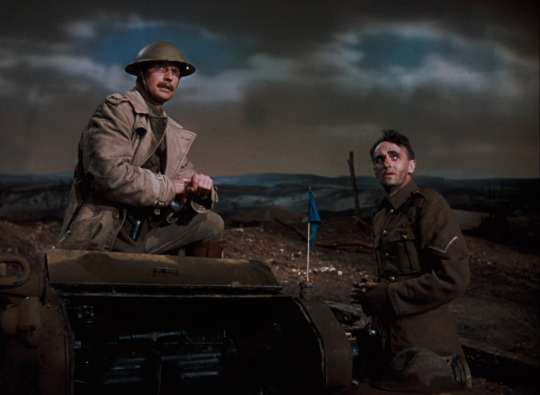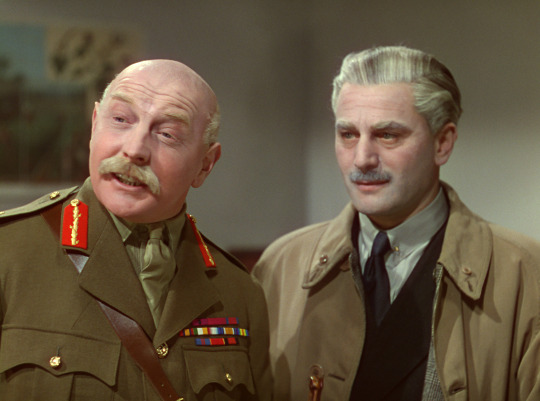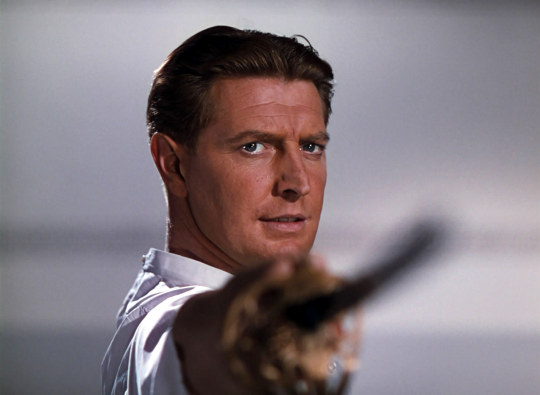War Starts At Midnight: The Three Wartime Visions of Michael Powell and Emeric Pressburger by Josh Spiegel
By Yasmina Tawil

Few filmmakers have made films as thematically rich as those from writers/directors Michael Powell and Emeric Pressburger in the 1940s. From 1943 to 1949, Powell and Pressburger, better known as the Archers, made seven superlative films that leapfrog genres with heedless abandon, from wartime epic to fantastical romance to psychosexual thriller to ballet drama. Thanks largely to cinephilic champions such as Martin Scorsese and his longtime editor Thelma Schoonmaker (who married Powell in 1984), as well as home-media ventures like The Criterion Collection, the Archers films have received a vital and necessary second life.
While the Archers 1940s-era septet have recognizable throughlines as well as a reliable stable of performers, three of those films are cut from the same cloth, despite telling radically different stories with varying tones. The Life and Death of Colonel Blimp, A Canterbury Tale, and A Matter of Life and Death all take place, at least in part, during World War II, and all three films depict a nation at war, as much with other countries as with itself. When we think of British culture, we think of the stiff-upper-lip mentality depicted in popular culture for decades, typified by how Brits acted and reacted in World War II. But the Archers, in this wartime trio, debated the validity of fighting a war with that old-fashioned mentality, offering up films designed to be propagandistic enough to be approved for release but that also asked what it meant to be British in seemingly perpetual wartime.
* * *
But war starts at midnight! – Clive Wynne-Candy
Oh, yes, you say war starts at midnight. How do you know the enemy says so too? – Spud Wilson

The nuance of The Life and Death of Colonel Blimp was likely always going to make it a sore spot for the British government. Colonel Blimp was not original to The Archers; he was a comic-strip character created by David Low in the 1930s, meant to skewer puffed-up elder statesmen of the British military. The stereotype of a fatheaded, pompous fool had pervaded the national consciousness so much that Winston Churchill feared the Archers adaptation would revive the publics critical perception of the military when support was needed the most. But while the title invokes Colonel Blimp, the lead character is never referred to as Blimp, and is much less foolish than he may seem when initially seen attacking a young British soldier in a Turkish bath. Powell and Pressburger used the character and the staid, fusty old notions of British militarism as a jumping-off point for a detailed, poignant character study.
Set over four decades, The Life and Death of Colonel Blimp begins near its finale, as Great Britain struggles to gain a foothold over the Nazis. We first see our Colonel Blimp, the portly, bald, and mustachioed Clive Wynne-Candy (Roger Livesey), beset upon by younger soldiers in the club where he now lives as part of a training exercise. Clive is infuriated because theyve started hours earlier than planned; before the smug young soldier leading the charge can explain himself, the two get into a tussle that speaks to why Powell and Pressburger wanted to tell this story. In the production of their previous film, One of Our Aircraft is Missing, the directors removed a scene where an elderly character tells a younger one, You dont know what its like to be old. (The idea that this could serve as the thematic backbone to an entire feature was provided by the Archers then-editor, David Lean.) Clives rage at being taken off-guard leads him to thrash young Spud Wilson and teach him a lesson: You laugh at my big belly, but you dont know how I got it! You laugh at my mustache, but you dont know why I grew it!
And so, The Life and Death of Colonel Blimp flashes back 40 years, a rare instance where a movie indulging in the now-hoary in medias res technique pays dramatic dividends. The rest of the film focuses on three points in the life of the man known first as Clive Candy: his time in the Boer War, the devastating World War I, and his twilight years of service as World War II ramps up. For a war film, The Life and Death of Colonel Blimp offers exceedingly little bloodshed. Powell and Pressburgers film examines how such gruesome action informs men like Clive away from the battlefield, instead of depicting that action in full. Each section of Blimp shows how his noble efforts make him hardened and intractable over time, even against the tide of a truly tyrannical force. At first, Clives militaristic mantra is honorable: Right is might. But as the film reaches its third hour, he learns that his theory, one embodied by his nation, has been so cruelly disproven by the Nazi scourge that he and Britain must change their ways.



